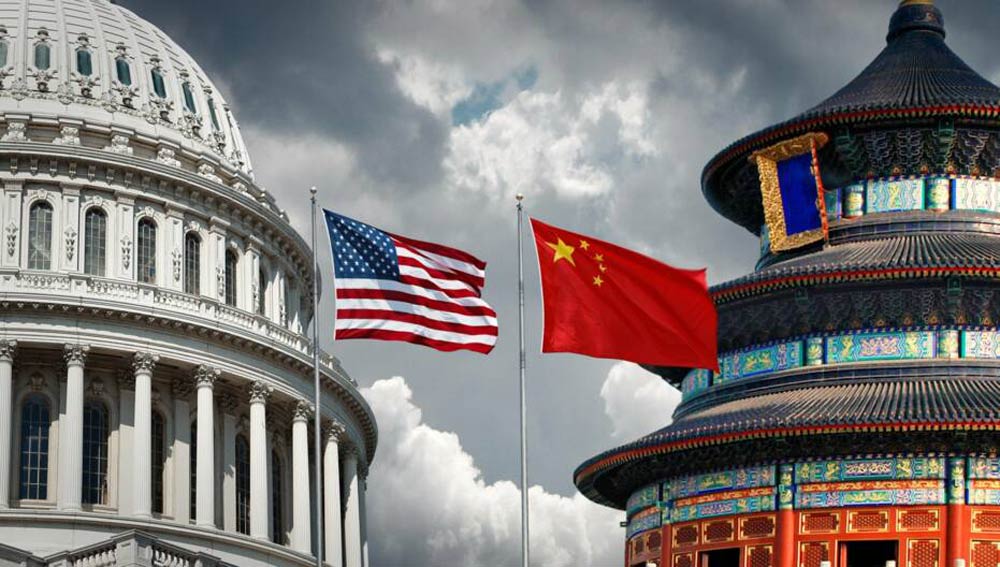China has firmly rejected Washington’s recent accusations of violating the Geneva trade agreement, instead claiming that the U.S. has breached the deal itself. This latest exchange marks a significant escalation in the already-strained relations between the world’s two largest economies.
The trade dispute reignited after former President Donald Trump accused China of failing to honor its commitments under the preliminary trade deal reached during talks in Geneva earlier this year. In a social media post, Trump declared that China had “TOTALLY VIOLATED ITS AGREEMENT WITH US,” a comment that drew sharp criticism from Beijing.
Rising Trade Frictions
The conflict followed a brief hiatus in trade tensions after U.S. Treasury Secretary Scott Bessent and China’s Vice Premier He Lifeng met in Geneva, agreeing on a 90-day suspension of tariffs. Despite this, the Trump administration has since imposed stricter export controls on semiconductor design software and chemicals while also revoking visas for Chinese students.
Beijing has strongly condemned these actions. A spokesperson for China’s Commerce Ministry stated that such measures “seriously undermine” the Geneva agreement and vowed to take countermeasures to protect China’s interests if the U.S. continues its current course.
Furthermore, China has maintained its grip on rare earth exports, a resource critical to global technology manufacturing, defying U.S. expectations for eased restrictions. Chinese state media highlighted ongoing efforts to prevent illicit mining and exports of these critical minerals, signaling Beijing’s intention to maintain control over its strategic resources.
Beijing’s Tough Stance
Stephen Olson, a visiting senior fellow at the Yusof Ishak Institute in Singapore, noted that China is “comfortable taking an extremely firm stance in these negotiations.” Olson added that Beijing sees any potential trade deal with the U.S. as offering only temporary relief, not a lasting resolution.
This sentiment was echoed by Chinese officials who accused the U.S. of “unilaterally provoking new economic and trade frictions,” thereby increasing instability in bilateral relations.
Calls for Leadership Dialogue
Amid the escalating tensions, there have been calls for direct discussions between U.S. President Donald Trump and Chinese President Xi Jinping. National Economic Council Director Kevin Hassett suggested that a Trump-Xi phone call could happen soon, though experts remain skeptical about its likelihood.
Dennis Wilder, a former senior White House intelligence official, pointed to a lack of coordination within the U.S. government as a key factor behind the deteriorating relationship. Wilder highlighted that recent U.S. policy changes, including restrictions on chip exports and student visas, may not have been fully coordinated with other agencies.
However, experts argue that Beijing prefers to reserve leader-level meetings for when substantial agreements have already been reached at lower levels, unlike Trump’s preference for high-profile negotiations.
Beyond Trade: Military Tensions Grow
The fallout between the U.S. and China extends beyond trade as military tensions in the Indo-Pacific region also continue to rise. Speaking at the Shangri-La Dialogue in Singapore, U.S. Defense Secretary Pete Hegseth described China’s military posture as a “real and imminent” threat. He called on allied nations to increase defense spending to counter Beijing’s growing influence in the region.
China’s defense ministry dismissed Hegseth’s remarks, accusing the U.S. of fostering a “cold-war mentality” and destabilizing regional peace. Notably, China’s defense minister was absent from this year’s summit, breaking a tradition of attending the annual event since 2019.









